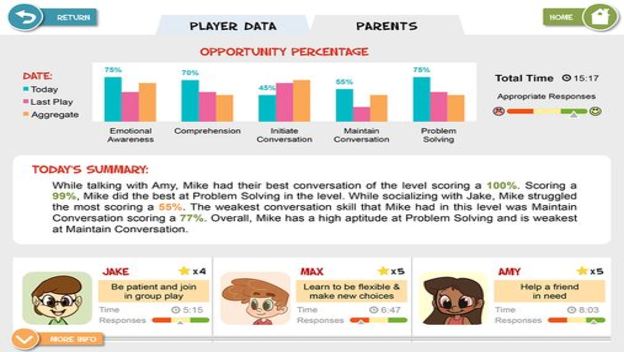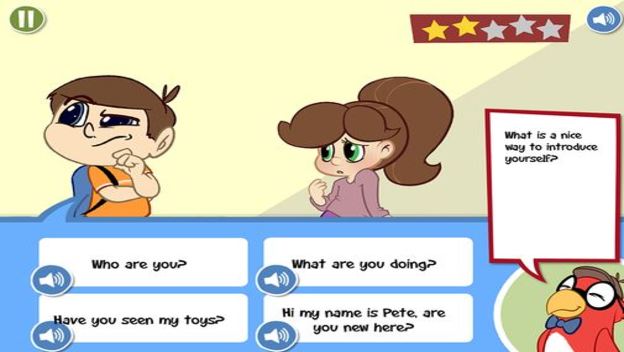For most of us, social behavior is kind of second nature. We know how to carry on conversations, make eye contact, and generally behave in a socially acceptable manner. However, for children with autism it’s not so easy. Luckily, video games have been shown to be effective learning tools, and 35 students at the University of Southern California are trying to use games in order to help autistic children learn the ins and outs of social interaction.
The game is called Social Clues . Children take control of one of two characters, ParticiPETE or CommuniKATE. Yeah… it’s dorky that way. The children are attempting to find their lost toys, a simple and immediate goal any child can empathize with. However, to do so, the children must communicate with other characters in a virtual space. Their goal is to communicate with these characters in an acceptable social fashion, and doing so will get the characters closer to finding their toys while teaching the players social cues and empathy.
For example, one of the skills that the game is aiming to teach children is the ability to make eye contact. They will have to drag an arrow from their character’s eyes to another character’s eyes before they can even start talking. More advanced tasks involve understanding another character’s emotions. Children will have to recognize facial expressions and bodily behaviors and match them to flash cards that describe the emotions. Children will then have to respond in the correct way to characters that are feeling different emotions. The game will also teach students conversational skills, such as staying on topic and not interrupting other people who are talking.

“What we’re trying to do is break down everyday interactions into something very understandable, very manageable,” USC Marshall School of Business MBA student Jeremy Bernstein said. The idea is to basically teach children these skills by breaking them down into simple and repeatable patterns that they can draw on in their day to day interactions. The team met with over a dozen autistic children and therapists who specialize in autism. They observed these children’s therapy sessions and drew on the most effective therapeutic methods in order to design the goals in Social Clues. For example, the interface is very simplistic, composed of bright buttons, simply drawn characters, and a cartoon character, a parrot named Sherlock, speaks to the children at every point walking them through it, rather than forcing the children to read text.
The game won’t cure children of their autism, of course, but it should be able to create a “road map” for these children to use in social situations they encounter in their day to day lives. Social Clues is not currently slated to be monetized in any way nor does it have any sort of release date. For now, it just stands as an awesome therapeutic tool that shows that video games can do some real good in the world.
